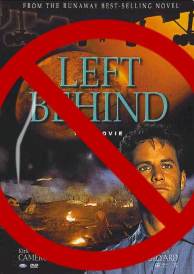 I have decided to re-read John Owen’s The Death of Death in the Death of Christ. I’m reading the Banner of Truth paperback scan with the introduction by J. I. Packer.
I have decided to re-read John Owen’s The Death of Death in the Death of Christ. I’m reading the Banner of Truth paperback scan with the introduction by J. I. Packer.
J. I. Packer makes it clear that the Gospel is at stake in John Owen’s defense of “Limited Atonement.” This is the kind of thing where, if Packer is right, then the issue is really important. But if Packer is wrong, then he is being highly schismatic.
I may deal more with that later. What I want to notice in this blog post is that Packer has what a reader could interpret as two different versions of limited atonement in the first few pages of his introduction. On page 4 he sets out the five points:
(1.) Fallen man in his natural state lacks all power to believe the gospel, just as he lacks all power to believe the law, despite all external inducements that may be extended to him, (2.) God’s election is a free, sovereign, unconditional choice of sinners, as sinners, to be redeemed by Christ, given faith, and brought to glory. (3) The redeeming work of Christ had as its end and goal the salvation of the elect. (4.) The work of the Holy Spirit in bringing men to faith never fails to achieve its object. (5). Believers are kept in faith and grace by the unconquerable power of God till they come to glory.
However, on page 7 he specifies that, the redeeming work of Christ actually accomplishes the salvation of the elect in a significant way.
Calvinists, however, define redemption as Christ’s actual substitutionary endurance of the penalty of sin in the place of certain specified sinners, through which God was reconciled to them, their liability to punishment was forever destroyed, and title to eternal life was secured for them.
In my opinion, the most natural reading of the second description–the understanding I remember deriving from these words when I first read Packer in my youth–is plainly wrong.
When Saul of Tarsus was on the road to Damascus he was chosen by God for eternal salvation, but he was also an enemy of God, liable to punishment for his sins, and had no title to eternal life. God had decreed to bring him to repentance and faith and union with Christ to grant him that title, but he had no claim on it yet. God had not given it to him yet.
On the formula offered above, if Stephen called out to Saul, as he saw him overseeing the garments of the Sanhedrin, and warned Saul he was under God’s wrath for his hardness of heart and violence against the Church, Stephen would be making a claim that was not true. The penalty for Saul’s past, present, and future sins had already been paid. The wrath of God was already satisfied for him.
The Westminster Confession contradicts this position:
God did, from all eternity, decree to justify all the elect, and Christ did, in the fullness of time, die for their sins, and rise again for their justification: nevertheless, they are not justified, until the Holy Spirit doth, in due time, actually apply Christ unto them. (“Of Justification” – Chapter 11, paragraph 4).
I remember reading the Confession and yet never really thinking about what this paragraph was telling me. If memory serves (and it may be inaccurate) part of the reason I couldn’t really acknowledge this paragraph was precisely because I had read J. I. Packer’s introduction to The Death of Death by John Owen. It blinded me. I remember the recruiter from Westminster Theological Seminary, talking to me at Houghton College (late 80s) and mentioning that Arminians had no theory of the atonement at all. And I of course thought that made perfect sense at the time. Now I realize I had implicitly denied justification by faith.
What I find odd is that Packer wants to affirm a Trinitarian salvation. On page 6:
For to Calvinism there is really only one point to be made in the field of soteriology: the point that God saves sinners. God–the Triune Jehovah, Father, Son and Spirit; three Persons working together in sovereign wisdom, power, and love to achieve the salvation of a chosen people, the Father electing, the Son fulfilling the Father’s will by redeeming, the Spirit executing the purpose of the Father and the Son by renewing.
But if Jesus has already given us title to eternal life, and made us no longer liable to eternal punishment, then I don’t see how this Trinitarian salvation holds up. The Spirit then, is not working to achieve salvation but is, in fact, simply an effect of salvation. He works to prevent unregenerate unbelievers from dying and going to heaven because God has already removed his wrath from them.
I have other problems with this second description. Allow me to quote it again with the next sentence included:
Calvinists, however, define redemption as Christ’s actual substitutionary endurance of the penalty of sin in the place of certain specified sinners, through which God was reconciled to them, their liability to punishment was forever destroyed, and title to eternal life was secured for them. In consequence of this, they now have in God’s sight a right to the gift of faith, as the means of entry into the enjoyment of their inheritance.
That is simply not what Calvinists believe, it is not logically demanded from Calvinism, and (unless John Owen can prove otherwise) it is not biblical. People are not adopted at the cross–in billions of case, before they actually exist–and then discover the enjoyment of this inheritance later in life when they are converted to faith by the Spirit. Anyone who has memorized the Westminster Shorter Catechism knows this is the case:
Q. 34. What is adoption?
A. Adoption is an act of God’s free grace, whereby we are received into the number, and have a right to all the privileges of, the sons of God.
And when are we adopted? The Catechism gives us the time frame:
Q. 29. How are we made partakers of the redemption purchased by Christ?
A. We are made partakers of the redemption purchased by Christ, by the effectual application of it to us by his Holy Spirit.
Q. 30. How doth the Spirit apply to us the redemption purchased by Christ?
A. The Spirit applieth to us the redemption purchased by Christ, by working faith in us, and thereby uniting us to Christ in our effectual calling.
Q. 31. What is effectual calling?
A. Effectual calling is the work of God’s Spirit, whereby, convincing us of our sin and misery, enlightening our minds in the knowledge of Christ, and renewing our wills, he doth persuade and enable us to embrace Jesus Christ, freely offered to us in the gospel.
Q. 32. What benefits do they that are effectually called partake of in this life?
A. They that are effectually called do in this life partake of justification, adoption and sanctification, and the several benefits which in this life do either accompany or flow from them.
No one has legal benefits, rights, or privileges before God as unbelievers who are not justified, even though God has chosen them for salvation and sent Christ to die and rise for them with their salvation as the end or goal of that work. We become heirs when we repent and believe. We don’t do this ourselves, God’s Spirit gives us faith by grace.
Since Packer is declaring what “Calvinism” is, I’m going to suggest it might be helpful to go to the source. Here is John Calvin, Book 3, of The Institutes of the Christian Religion:
THE WAY IN WHICH WE RECEIVE THE GRACE OF CHRIST: WHAT BENEFITS COME TO US FROM IT, AND WHAT EFFECTS FOLLOW
Chapter I: The Things Spoken Concerning Christ Profit Us by the Secret Working of the Spirit
1. The Holy Spirit as the bond that unites us to Christ. WE must now examine this question. How do we receive those benefits which the Father bestowed on his only-begotten Son–Not for Christ’s own private use, but that he might enrich poor and needy men? First, we must understand that as long as Christ remains outside of us, and we are separated from him, all that he has suffered and done for the salvation of the human race remains useless and of no value for us. Therefore, to share with us what he has received from the Father, he had to become ours and to dwell within us.
Calvin’s words immediately line up with the Westminster Standards from a century or so later. They don’t work that well with Packer’s description of the work of Christ–the one he insists all Calvinists believe in.








